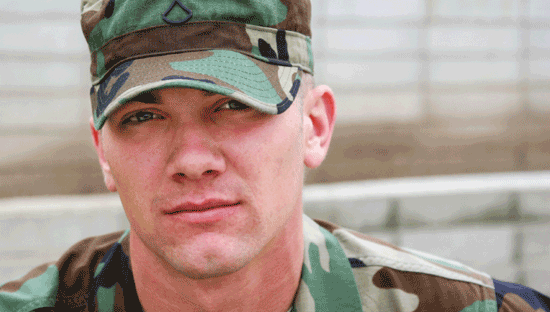
Many soldiers are returning from war with wounds that no one can see.
Silent Warriors, Silent Wounds
by CH (MAJ) Steven Simpson
In communities large and small across the USA, soldiers are returning from war. Many of these soldiers will return to their communities and churches with wounds no one can see. Though they have not lost a limb, sustained terrible burns, or been shot up badly, their wounds are very serious. These wounds have always been a part of war. Soldiers returning from our nation’s wars have known them well. In the Army, the phrase Seeing the White Elephant refers to a soldier who has seen combat and seen his enemy firsthand. That unique experience changes a person forever.
It is amazing how horrible human beings can treat each other, and war demands a steep price for those who experience it. The things you see, the things you smell, the fear you feel, the enemy who tries to kill you, death, grief, and sometimes injustice are all parts of a war. Approximately 30% of the soldiers and service men who return from war suffer from what psychiatrists call PTSD or Post Traumatic Stress Disorder. Others suffer from combat stress endured in the war zone.
PTSD is characterized by the soldier whose mind gets stuck in the “fight or flight” mode, the survival mode God has given each of us. When you are afraid, your mind automatically produces “fight” (what is threatening you) or “flight,” (get away from the danger). Some soldiers are unable to flip the switch of fight or flight when they return from war. They are stuck in the “on” position. Of course, our bodies are not made to remain in this mode all the time. This burst of adrenaline is only intended to help us survive what we perceive as a threat. It is a God-given impulse.
Spotting the Symptoms
What are the symptoms of PTSD or extreme combat stress that pastors and leaders should be aware of? One of the most common is the “on pins and needles effect.” The person becomes hyper-vigilant of his surroundings, even though he is out of the war zone. Again, think of this as the light switch being stuck in the on position. Other symptoms include a lack of emotion or extreme emotion. Often, married soldiers struggle to regain the emotional bonds with their spouses because they have turned off their emotions in the war zone.
While the spouse may expect the same level of emotion in the marriage to which they were accustomed, often the returning soldier is just not ready for that level of emotional intimacy during the first year after combat. It takes a soldier time to heal and return to the normalcy of life again, including their emotional life. Because of the horrors of having to kill another human being, or having to survive a fight to the death with the enemy, or just survive the experience, these effects get stuck in the human mind for a long time.
Other soldiers suffer deep grief from losing a buddy or a friend. To cover their grief, many turn to alcohol or drugs. Others turn to addictions such as gambling and sex or other dangerous and reckless behaviors. The results are the same—big trouble. These symptoms may produce trouble in the marriage, trouble at work, and/or trouble just getting back to normal.
Supplying Support
Free Will Baptist pastors are in a key position to help many of these warriors as they return from battle. The best thing you can do for soldiers in your congregation is to be a good pastor to them. Listen to them, pray with them and for them, and be good to their families. Make them aware that help is available. Don’t be afraid to refer them to professional counselors, as some of them will require that kind of attention. Refer them to the Veterans Administration hospitals when necessary.
If you and your congregation stand by them in their time of need, God will bring healing to them through you. Above all, don’t be afraid to use your own feelings and pastoral instincts to help a struggling soldier. God will bless you both in the experience. What many of our soldiers are seeking is real peace—a peace that can come only from God.
Philippians 4: 6-7 says it well, “Be careful for nothing; but in everything by prayer and supplication with thanksgiving let your request be made known unto God. And the peace of God, which passeth all understanding, shall keep your hearts and minds through Christ Jesus.”
About the Writer: Chaplain Major Simpson serves the Lord and represents Free Will Baptists as a chaplain in the U.S. Army. He is currently stationed in Fort Eustis, Virginia. To learn more about the ministry of Free Will Baptist chaplains, visit www.homemissions.net.
|

